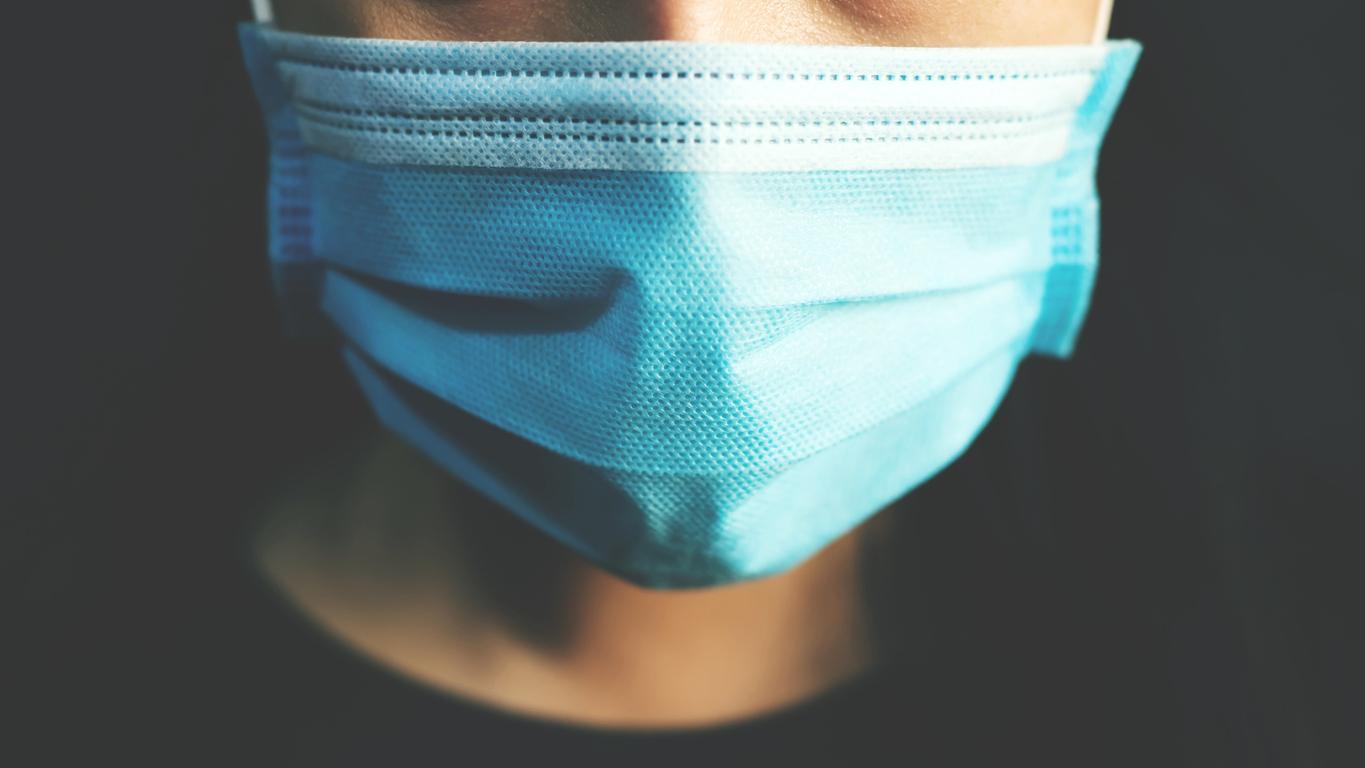Faced with the rise of the flu, rising Covid-19 indicators and the still numerous cases of bronchiolitis, many hospitals have reintroduced the obligation to wear a mask in their facilities.

- Winter viruses are circulating strongly at the end of the year.
- Faced with the rise in cases of flu and Covid-19, several hospitals have made arrangements to make the wearing of masks compulsory on their premises.
- Asked about the possible generalization of this measure, the Minister of Health replied “it’s good citizenship, solidarity, it’s not an obligation”.
Winter viruses are very present in France at the end of the year. While Covid-19 and bronchiolitis are still circulating, the flu has taken hold in Provence-Alpes-Côte d’Azur, the first region to enter the flu epidemic phase. And it should soon be joined by others, because Occitanie, Hauts-de-France as well as Pays de la Loire have been placed in the pre-epidemic phase.
Faced with this complex situation, several hospitals have decided to reintroduce the wearing of masks for healthcare staff and for some even visitors.
The mask is making a comeback in many hospitals
Since the decree of July 30, 2022, managers of health establishments and structures have the possibility “to impose the wearing of masks within them”. Several of them have decided to take advantage of it to avoid contamination in their premises during this period of high virus circulation. The Brive-la-Gaillarde hospital center (Corrèze) reintroduced the wearing of masks as of December 5, reports CNews. It is obligatory “for healthcare professionals” And “recommended within the establishment for patients and visitors”. The Orléans hospital made a similar decision, as did Les Hôpitaux de Chartres.
In a press release published on December 13, they indicated: “The acute respiratory infections steering committee of the center Louis Pasteurmade up of members of management, doctors and a senior health executive, decided to implement measures from this Thursday, December 14.“Wearing a mask is obligatory” for all people (professionals, patients, consultants and visitors)for all services, for all places and for all occasions.“
Other establishments have chosen to make it compulsory for all people using their facilities, such as the Troyes hospital. (Dawn) or the hospital center Fernand-Léger d’Argentan (Orne).
The mask is present in the corridors of the Assistance Publique des Hôpitaux de Paris establishments (APHP)from the Vendôme hospital center (Loir-et-Cher) and hospitals in Le Mans (Sarthe) or La Rochelle (Charente Maritime) since October.
This non-exhaustive list of health establishments requiring the wearing of masks is likely to expand. Faced with the increase in cases of flu and Covid, many hospitals are considering taking similar measures in the coming days.

Wearing a mask: the return of a bond in question
At the end of November, several associations of patients and health professionals demanded in a column published in theExpress “a return of the mask and protective and effective measures in all places of care”.
“It is inconceivable that the end of the state of emergency has put an end to all preventive measures against Covid-19 and other airborne diseases, everywhere, even in places of care of which attendance exposes to an unacceptable risk of contamination”they wrote. Faced with the still significant presence of Covid-19, they demanded: “Let’s go out denial by following science and law: To save lives and the values of our society, let us demand the sanitation of indoor air and the compulsory wearing of masks in all healthcare establishments, everywhere, now.”
But the obligation to wear a mask does not seem to be on the agenda for the government. Asked about this possibility by BFM on December 14, 2023the Minister of Health Aurélien Rousseau estimated that “the reflex of barrier gestures – which could also be called basic hygiene gestures and which are present in many countries around the world – we should have it a little (In France)especially as Christmas approaches.. However, for him, wearing a mask in case of symptoms, “it’s civics, solidarity, it’s not an obligation.”
















